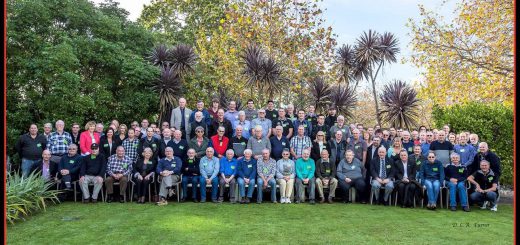Ponui Kiwi for Waiheke?
Letter to the editor Gulf News
Dear Editor,
In regard to the forthcoming talk by the inspirational Paul Ward hosted by Te Korowai o Waiheke, it’s really encouraging to hear of good news on progress at last for reintroduction of North Island brown kiwi to Waiheke.
North Island brown kiwi (Apteryx mantelli) according to DOC, despite best efforts are steadily declining at a rate of 2-3% per year.
As your well researched article notes, I first raised the idea of introducing kiwi to Waiheke when I was chair of the Auckland Regional Council in 2010.
See: https://www.mikelee.co.nz/2010/09/kiwi-release-planned-for-waiheke-and-pakihi-island/
and: https://www.mikelee.co.nz/rediscovered-ponui-islands-lost-tribe-of-kiwi/?csshero_action=edit_page&rand=280
Given that this latest proposal involves a transfer application led by Lady (Jenny) Fenwick, It is heartening to recall the Te Matuku peninsula (with the enthusiastic support of the late Sir Rob) was one the original release sites in the 2010 plan, along with Whakanewha Regional Park. I won’t go into what happened proposal after the demise of the ARC, however the other key element in the plan, and a most important one, was that the birds were to be sourced from Ponui Island. This for a number of good reasons. The kiwi population on Ponui is arguably the most successful in the country, with approximately 2000 kiwi living on the island of 1795 ha. Ponui island at its nearest point is just 1.8 km from Waiheke and 2.8 km from the Te Matuku peninsula.
Ponui kiwi have been the subject of extensive research by Massey University scientists led by Dr Isabel Castro.
Scientific reasons for the transfer, as opposed to the obvious conservation motive, included, to put it simply, to determine whether environment is a key factor in the Ponui kiwi population’s remarkable success or is it their genetics? A sort of nature v nurture question.
The final reason, is that Ponui kiwi population is so successful that it is routinely exceeding the island’s carrying capacity. In many years, especially dry ones, kiwi chicks on Ponui die from starvation.
The reason the original transfer process was stopped in its tracks (at least until now) was DOC’s decision that the Ponui kiwi due to their hybrid ancestry; they are descendants of both Northland and Taranaki brown kiwi populations, released on the island by the old NZ Wildlife Service at the request of the Chamberlin family in 1963/64; had, according to DOC “no future conservation value” with “no genetic value whatsoever for use in restoration” .
While conserving and retaining the genetic diversity of these separate North Island brown kiwi sub-populations (Northland, Coromandel, Taranaki and Eastern taxons) is certainly a very important conservation priority, DOC’s approach in my opinion (and others) has been excessively purist, failing to take into account the overall recovery of the species and the welfare of this successful but under stress population of Ponui birds.
Because of their hybrid nature DOC were evidently concerned that letting these birds off Ponui could bring them into contact with kiwi from other ‘pure’ taxons (and contaminate them with their mixed ancestry!) but Waiheke Island provides the ideal solution as it is large enough to support, if properly managed, hundreds if not thousands of kiwi and their presence would act as a permanent veto on transferring kiwi here say from Coromandel or Northland. Ironically it could well be the mixed ancestry of these kiwi which is the key to their robust success. An international scientific paper based on Ponui research, soon to be published, will be making this very point.
Translocating Ponui kiwi to Waiheke, properly managed, will almost certainly increase the overall numbers of North Island brown kiwi and also stop the annual starvation of kiwi chicks on Ponui. It will mean that nature loving Waiheke Islanders can look forward to hearing the calling of kiwi at night. Just knowing they are here will be a great comfort for many of us. Congratulations to Jenny Fenwick, Ngāti Paoa and Ngai Tai. I am not alone in wishing them every success
Yours,
Mike Lee
This was published in Gulf News 23 November 2023


